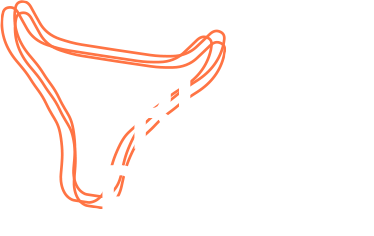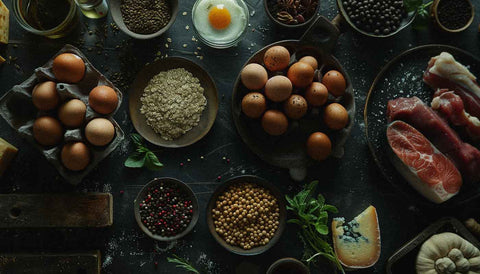In the quest for optimal performance and physique, fitness enthusiasts and bodybuilders meticulously plan their diets, prioritising foods that fuel muscle growth and recovery. Among the myriad of dietary options, high-protein foods stand out for their crucial role in supporting these goals. While chicken breast, eggs, and oats are staples known for their nutritional benefits, there's another powerhouse that deserves recognition: biltong. This traditional South African snack not only offers a unique combination of flavour and convenience but also boasts an impressive nutritional profile, making it an excellent addition to any fitness regimen. Below, we explore how biltong compares with other high-protein foods and why it could be your next diet staple.

What is Biltong?
Biltong is a cured, air-dried meat, originating from South Africa, with a rich history and distinctive preparation method. Unlike its cousin jerky, biltong undergoes a marination process in a blend of vinegar, spices, and salt before being air-dried, resulting in a tender texture and complex flavour profile. Our Biltong is traditionally made from beef, but it can also include Biltong kangaroo, turkey, ostrich, and even bacon. Once dried, biltong is sliced and offers a nutrient-dense, high-protein snack perfect for on-the-go consumption.
Nutritional Profile of Biltong
A 50g serving of biltong is a nutritional powerhouse, especially for those looking to boost their protein intake and gain muscle:
- Protein: Approximately 30g
- Calories: Roughly 150-200
- Carbohydrates: Usually less than 1g
- Fat: 2-3g, predominantly unsaturated fats
- Other Nutrients: Rich in iron, zinc, and B-vitamins
This profile positions biltong as an attractive option for anyone aiming to increase protein consumption without excess calories or carbs.
Comparing Biltong to Common High-Protein Foods
When compared with popular protein sources in a fitness or bodybuilding diet, biltong's advantages become clear:
Chicken Breast
A go-to protein source, chicken breast is typically fairly lean and provides about 31g of protein per 100g serving. It's versatile and low in fat but requires cooking and lacks the portability of biltong. It's a great versatile protein source.
Turkey
Lean and rich in protein, turkey offers about 29g of protein per 100g. Like chicken, it needs preparation and cooking.
Fish / Tuna / Salmon
Fish such as salmon and tuna are not only high in protein (about 25g and 28g per 100g, respectively) but also offer omega-3 fatty acids. However, they require cooking and proper storage. We are fans of canned tuna for convenience but sometimes it just starts to feel a bit same same after a while.
Eggs
A large egg delivers around 6g of protein. Eggs are nutritious and versatile, and delicious, but they are higher in cholesterol than plant-based proteins. You also need to eat a lot of them and they should really be cooked for safety. If you intend to chug down some egg whites we won't judge.*Just threw up in my mouth a little*
Oats
Providing about 17g of protein per 100g, oats are a source of complex carbohydrates and fibre, ideal for sustained energy but offering less protein per serving compared to biltong. They're a great source of protein that offers something other than meat while still meeting protein intake requirements.
Steak (Beef)
A 100g serving of beef steak contains about 25g of protein, making it a solid option for muscle building. Yet, it requires cooking and isn't as convenient as biltong. Because Biltong is air-dried it is equivalent to steak in nutrient profile but Biltong is higher in protein in a purely weight comparison.
Greek Yogurt
With roughly 10g of protein per 100g serving, Greek yogurt is a source of protein and probiotics. It's versatile but perishable and higher in carbs. You can eat it straight from the tub which is great but it does require refrigeration.
Nuts (e.g., Almonds, Peanuts)
Nuts are packed with protein, healthy fats, and fibre, but they're also calorie-dense, which might be a consideration in calorie-controlled diets.
Why Biltong Is Ideal for Fitness and Bodybuilding Diets
- High Protein, Low Carb: Biltong's exceptional protein-to-carb ratio supports muscle synthesis and energy regulation without unnecessary sugars or fillers.
- Convenience: Its ready-to-eat nature makes biltong a practical snack for busy lifestyles, fitting effortlessly into any meal prep routine.
- Nutrient-Dense: Beyond protein, biltong supplies key nutrients like iron and zinc, crucial for overall health, energy levels, and immune function.
- Culinary Versatility: Biltong can enhance dishes beyond snacking, from protein-packed salads to innovative recipes, adding culinary diversity to your diet.
Salt Content in Biltong
The salt used in the typical curing process plays a critical role in developing biltong's distinctive taste and texture. Our Biltong at Black Protein does not use salt as part of this process but other Biltong providers may use additional salt in the curing process. As the meat dries, the relative concentration of natural salts already present in the beef increases. This means that even if a modest amount of salt is used in the preparation, the final product can have a higher salt-to-meat ratio compared to its raw state. The natural salt present in beef, combined with the added salt for curing, contributes to this increased concentration. Please consider this when buying Biltong and look for 'no-added salt' options.
How to Enjoy Biltong Mindfully
-
Moderation: As with any high-sodium food, enjoy biltong in moderation. Consider it as part of your overall daily protein intake without overindulging.
-
Balance Your Diet: Pair biltong with low-sodium foods throughout the day to balance your overall sodium intake. Fresh fruits, vegetables, and whole grains can complement the protein-rich snack while keeping your diet nutritionally diverse.
-
Stay Hydrated: Consuming high-sodium foods can increase thirst due to the body's need to balance sodium levels with water. Ensure you drink plenty of fluids, preferably water, to stay hydrated.
Balancing nutrition, convenience, and taste, biltong emerges as a standout choice for anyone dedicated to a fit or bodybuilding lifestyle. Its superior protein content, minimal carbs, and healthful nutrients, paired with its ease of use, make biltong not just a snack but a strategic tool in achieving fitness goals. Just be careful not to eat too much to maintain healthy sodium levels. Whether you're looking to build muscle, improve recovery, or simply enjoy a delicious, high-protein treat, biltong is worth considering as a regular part of your nutritional arsenal.


